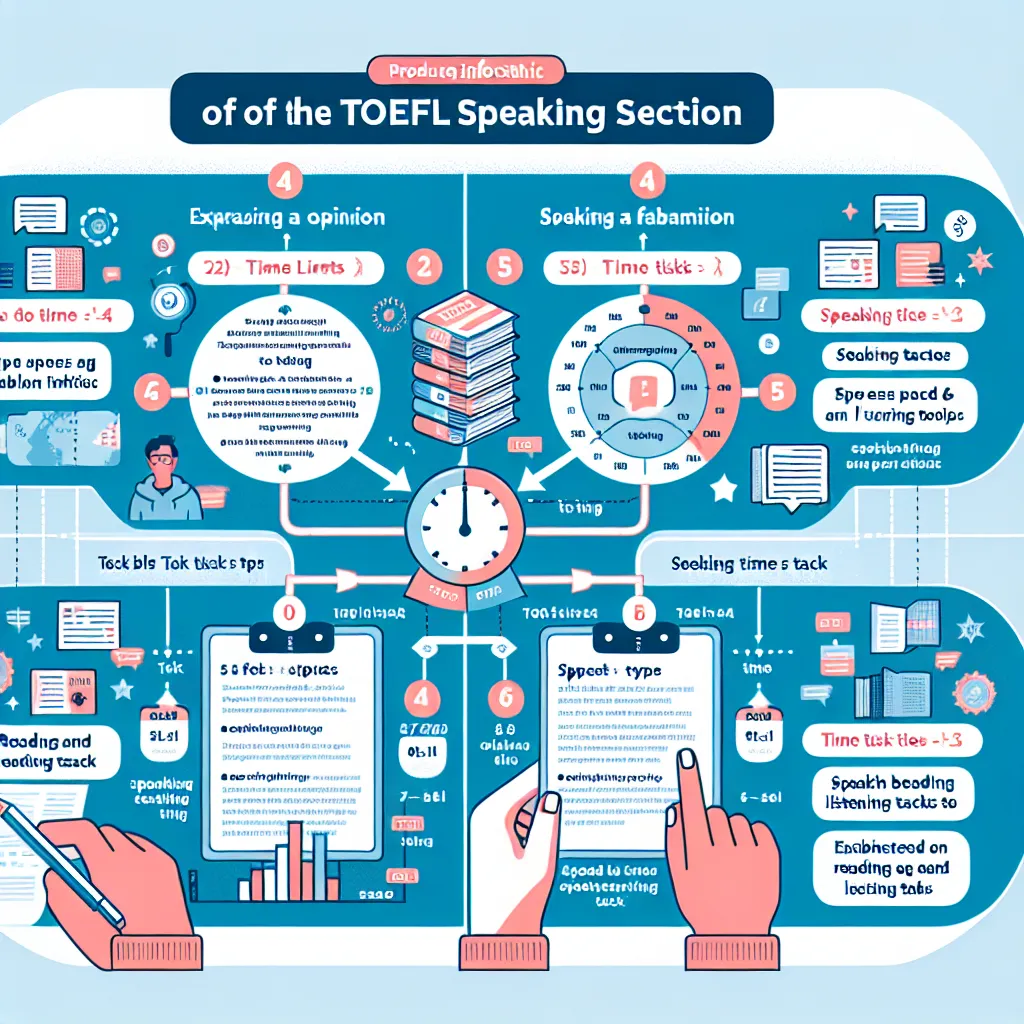Are you preparing for the TOEFL exam and aiming to excel in the Listening section? You’ve come to the right place! As an experienced TOEFL instructor and content creator, I’ll share valuable insights and proven strategies to help you achieve a high score in TOEFL Listening. Let’s dive into the essential techniques that will boost your performance and confidence.
Understanding the TOEFL Listening Section
Before we explore specific strategies, it’s crucial to understand the structure and content of the TOEFL Listening section. This knowledge forms the foundation for effective preparation and performance.
Structure and Format
The TOEFL Listening section typically consists of:
- 3-4 lectures (3-5 minutes each)
- 2-3 conversations (3 minutes each)
- 28-39 questions in total
- 41-57 minutes to complete the section
Each listening passage is followed by a set of questions that test your comprehension and ability to analyze the information presented.
 TOEFL Listening Structure
TOEFL Listening Structure
Types of Questions
You’ll encounter various question types in the TOEFL Listening section, including:
- Main idea questions
- Detail questions
- Purpose questions
- Inference questions
- Organization questions
- Function questions
Understanding these question types will help you focus on the right information while listening and answering questions.
Strategies to Score High in TOEFL Listening
Now that we’ve covered the basics, let’s explore effective strategies to boost your TOEFL Listening score.
1. Develop Active Listening Skills
Active listening is crucial for success in the TOEFL Listening section. Here’s how to cultivate this skill:
- Focus intently on the speaker’s words and tone
- Mentally summarize main points as you listen
- Anticipate where the conversation or lecture is heading
- Visualize the information being presented
Practice active listening in your daily life by consciously engaging with podcasts, news broadcasts, and academic lectures.
2. Improve Your Note-Taking Technique
Effective note-taking can significantly enhance your performance. Follow these tips:
- Use abbreviations and symbols to write quickly
- Focus on key ideas, not every word
- Organize your notes logically (e.g., use bullet points or a mind map)
- Practice note-taking with online TOEFL listening resources
Remember, your notes are a tool to help you answer questions, not a transcript of the entire passage.
3. Expand Your Academic Vocabulary
A strong vocabulary is essential for understanding academic lectures and conversations. To build your vocabulary:
- Study common academic word lists
- Read academic articles and journals regularly
- Use flashcards or vocabulary apps for daily practice
- Pay attention to context when learning new words
4. Familiarize Yourself with Various Accents
The TOEFL Listening section features speakers with different English accents. To prepare:
- Listen to podcasts and videos featuring various English accents
- Watch international news channels
- Practice with TOEFL preparation materials that include diverse accents
Exposure to different accents will increase your comfort level during the actual test.
5. Practice Time Management
Time management is crucial in the TOEFL Listening section. Here’s how to improve:
- Take timed practice tests regularly
- Learn to pace yourself during each listening passage
- Don’t spend too much time on any single question
- If you’re unsure about an answer, make an educated guess and move on
 TOEFL Listening Time Management
TOEFL Listening Time Management
6. Understand Common Themes and Topics
Familiarize yourself with common themes and topics that appear in TOEFL Listening passages:
- Natural sciences (biology, geology, astronomy)
- Social sciences (psychology, sociology, anthropology)
- Arts and humanities (literature, history, music)
- Campus life and academic procedures
Broadening your knowledge in these areas will help you grasp context more easily during the test.
7. Learn to Identify Signal Words and Phrases
Pay attention to signal words and phrases that indicate important information or transitions:
- “The main point is…”
- “In contrast…”
- “For example…”
- “However…”
These phrases often introduce key ideas or supporting details that are likely to be the subject of questions.
8. Practice Inference and Analysis
Many TOEFL Listening questions require you to make inferences or analyze information. To improve these skills:
- Practice summarizing passages in your own words
- Try to predict questions that might be asked about a passage
- Analyze the speaker’s tone and attitude
- Look for connections between different parts of the lecture or conversation
9. Utilize High-Quality Practice Materials
Invest in reputable TOEFL preparation resources:
- Official TOEFL iBT tests from ETS
- TOEFL preparation books from trusted publishers
- Online TOEFL courses with listening practice
- TOEFL preparation apps with listening exercises
[internal_links]Check out our recommended TOEFL preparation materials for a comprehensive list of resources.[/internal_links]
10. Simulate Test Conditions
Create a test-like environment when practicing:
- Use headphones to mimic test conditions
- Practice in a quiet room without distractions
- Time yourself strictly
- Take full-length practice tests to build stamina
The more familiar you are with test conditions, the more comfortable you’ll be on exam day.
Common Mistakes to Avoid
Be aware of these common pitfalls in TOEFL Listening:
- Translating words in your head instead of focusing on overall meaning
- Fixating on unfamiliar words and missing subsequent information
- Trying to write down every word instead of key points
- Failing to manage time effectively
- Not paying attention to the speaker’s tone and attitude
By avoiding these mistakes, you’ll be better positioned to score high in the TOEFL Listening section.
Next Steps: Putting It All Together
Now that you’ve learned these strategies, it’s time to put them into practice:
- Create a study schedule that incorporates regular listening practice
- Set specific goals for improving your listening skills
- Track your progress with practice tests and identify areas for improvement
- Join a TOEFL study group or find a study partner for motivation and support
- Consider working with a TOEFL tutor for personalized guidance
Remember, consistent practice and application of these strategies are key to achieving a high score in TOEFL Listening.
Conclusion
Scoring high in TOEFL Listening requires a combination of active listening skills, effective note-taking, time management, and strategic preparation. By implementing the tips and strategies outlined in this guide, you’ll be well-equipped to tackle the Listening section with confidence. Remember to practice regularly, stay focused, and approach the test with a positive mindset. With dedication and the right approach, you can achieve the TOEFL Listening score you’re aiming for. Good luck with your TOEFL preparation!




